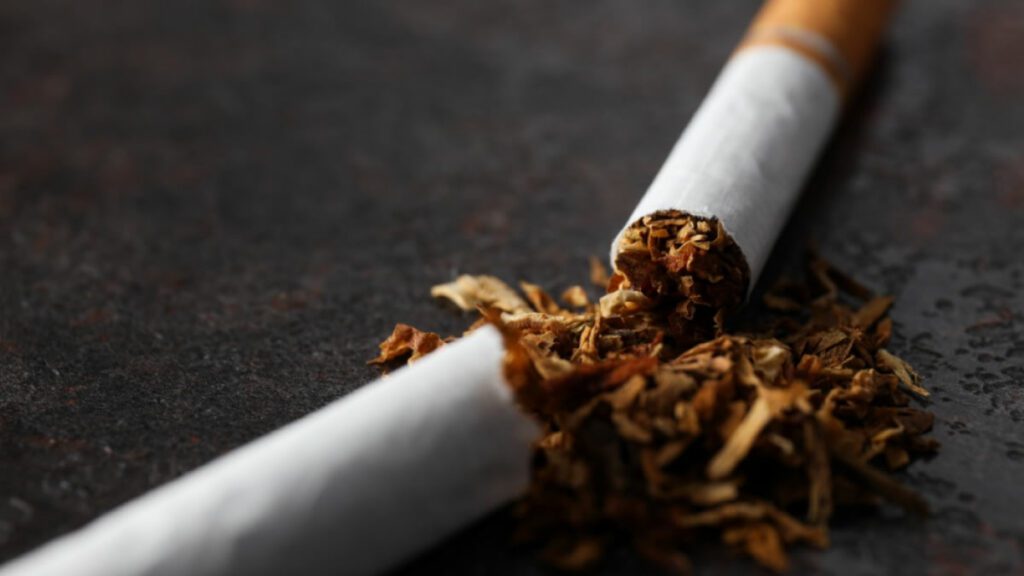It’s no secret that smoking harms your health. Beyond its well-known effects on the lungs and heart, smoking also impacts the scalp and hair, potentially worsening conditions like baldness or alopecia. If you’ve ever wondered whether smoking contributes to hair loss, the answer is a resounding yes. Research shows that smoking can indeed lead to thinning hair and even accelerate hair loss.
Does Smoking Cause Hair Loss?
While the dangers of cigarette smoke to overall health are widely recognized, its effects on the skin and hair are less commonly discussed. A recent study published in Archives of Dermatology examined 743 patients aged 40-90 and found that the toxic chemicals in cigarettes—over 7,000 of them—can damage hair follicles and disrupt the hormonal balance that regulates hair growth.
How Smoking Affects Your Hair
The connection between smoking and hair loss can be broken down into several key mechanisms:
- Impaired Blood Circulation: Nicotine, a primary component of tobacco, constricts blood vessels, reducing blood flow to the scalp. This limits the delivery of oxygen and nutrients to hair follicles, leading to weaker, thinner hair and increased shedding.
- Hormonal Disruption: Nicotine can increase the production of dihydrotestosterone (DHT), a hormone linked to androgenetic alopecia. Elevated DHT levels miniaturize hair follicles, making hair progressively thinner and more prone to breakage until the follicles become inactive, resulting in bald patches.
- Excess Sebum Production: Nicotine stimulates the release of adrenaline, which can increase sebum production. Excess sebum can clog hair follicles, hindering their function and contributing to hair loss.
- Oxidative Stress: The toxic chemicals in cigarette smoke generate oxidative stress, damaging the scalp’s pH balance and increasing inflammation. This makes the scalp more susceptible to conditions like alopecia areata. Additionally, free radicals from smoking can cause premature graying and make hair appear dull and brittle.
Can You Reverse Smoking-Related Hair Loss?
The good news is that there are steps you can take to mitigate the effects of smoking on your hair. The most effective solution is to quit smoking altogether. Within a few months of quitting, you may notice improved blood circulation and healthier, thicker hair. However, switching to vaping isn’t a perfect solution, as e-liquids still contain nicotine.
Here are additional strategies to combat smoking-related hair loss:
- Balanced Nutrition: A diet rich in vitamins and minerals essential for hair health, such as biotin, zinc, and iron, can support hair growth. Supplements may also help fill nutritional gaps.
- Topical Treatments: Under medical guidance, treatments like Minoxidil can stimulate hair growth and reduce shedding.
- Stress Management: Chronic stress exacerbates hair loss. Techniques like yoga, meditation, and deep breathing can help manage stress levels. Regular scalp massages can also improve blood flow to the follicles.
- Regenerative Medicine: For advanced hair loss, treatments like HairClinic’s bSBS Protocol offer regenerative solutions for dormant but still viable follicles. However, completely atrophied follicles may require a hair transplant.

Vape Content Creator | Flavor Reviewer | Lifestyle & Vape Culture Editor
Emily Carter is a vape-focused content creator specializing in flavor reviews, device aesthetics, and lifestyle-oriented vaping content. With hands-on experience testing disposable vapes and pod systems, Emily delivers clear, visually driven insights designed for adult consumers.








